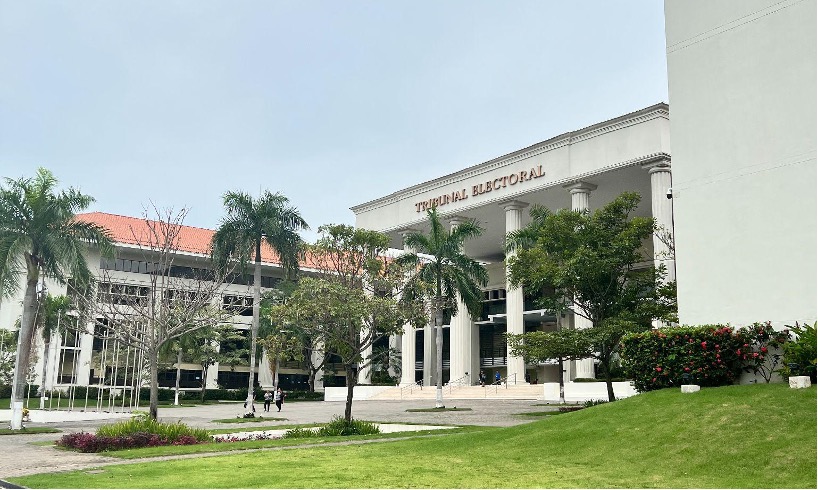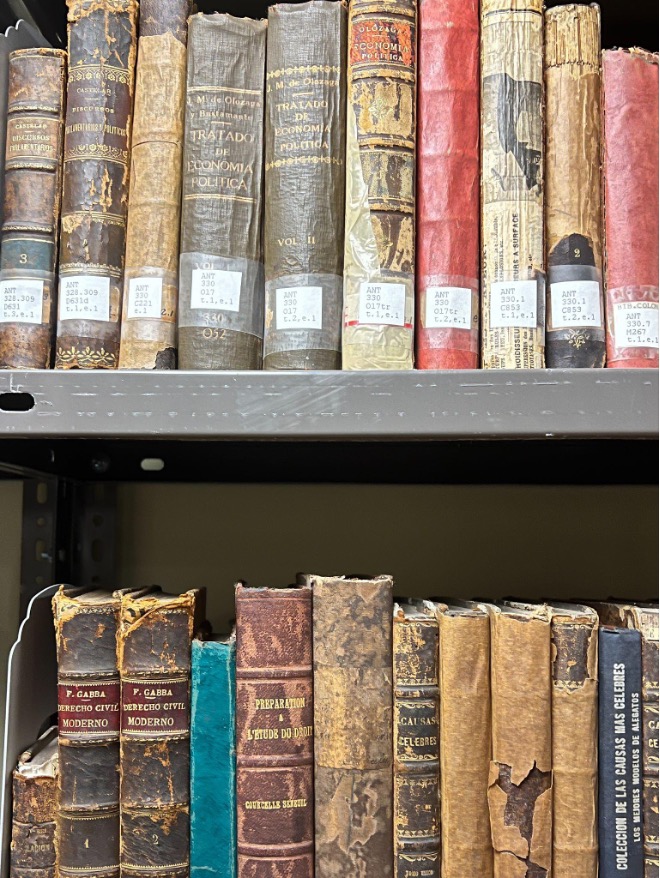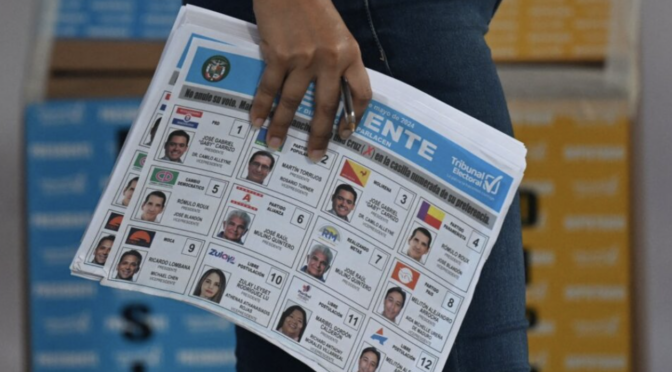By Andreana Faucette, Undergraduate student in the UT Spanish and Portuguese Department, Psychology Department, and Liberal Arts Honors Program
When I accepted the offer to join the University of Texas’ Government Department and International IDEA in Panama City for a summer, friends and family alike routinely prodded me with the same series of questions, akin to: “Why are you going to Panama?” Many mistakenly thought I was headed here for vacation, while many more simply failed to grasp my reasoning for choosing to spend a summer interning in a place away from home. On the surface, the answer was fairly straightforward. I had spent time there previously, have family ties to the region, and enjoyed my previous visit to the country. But more importantly than that, I was eager to learn, and found this fellowship program to be a unique opportunity to do just that. Over the course of my time interning for International IDEA at the Electoral Tribunal’s Institute of Democratic Studies, though, I’ve surpassed even my own expectations of learning more about the country by integrating myself into the Panamanian community.
My intern cohort arrived shortly after the end of Panama’s 2024 general elections, and our first day at the Electoral Tribunal of Panama serendipitously happened to coincide with a visit from the new president-elect José Raúl Mulino. After navigating past the large number of cameras and bodyguards surrounding him, we were quickly welcomed to our new workplace at the Tribunal and introduced to our new coworkers and work assignments.

One of my projects was to contribute to this year’s edition of Informe ATENEA, a joint initiative of the United Nations and International IDEA assessing the state of women’s political participation. The last edition for Panama, published in 2021, analyzed election results by sex to gain an accurate estimation of the number of women occupying political seats in regional and national positions in Panama. My role in the project this year involved sorting through similar data for the positions of county representative, mayor, legislative deputy, and other positions voted upon in the May 2024 elections, cross-referencing the names of elected representatives with their headshot (available on the Electoral Tribunal website) in order to confirm their gender.
This project is still ongoing, with only the statistical sorting of county representatives being fully complete, but preliminary analyses suggest a promising future for women in Panamanian politics. Moreover, getting the chance to work with various individuals at International IDEA and discuss the current state of gender representation and equality in Latin America has been an incredibly enriching experience.
In addition to this, many of my fellow interns and I had the privilege of assisting various researchers in the office with compiling scholarly sources to support their ongoing research projects. One research project involved supporting a principal investigator at the Institute of Democratic Studies (INED) in his research on the right to resistance against tyranny in Panama. In advance of our trip to Panama, our cohort took a semester-long course preparing us for our internship by providing us with crucial governmental, historical, and cultural information on the country, delivered in a combination of lectures and student-led presentations and culminating in a final research paper on a topic of our choice. I, along with my fellow intern Paulina Licon, authored a paper on the precedent of the right to resistance in Panama and Latin America as a whole. For this reason, it was all the more interesting to be able to collaborate with an individual with firsthand experience in a society that I was aiming to study. In working to aid his investigation, I was also able to contribute many sources I had found particularly useful in my own research process, and I learned much more about the right to resistance as a result.

Relatedly, I worked with another investigator in support of her research concerning the codification of anti-discrimination legislation. This project was particularly interesting to me and the other interns assigned to the project, as we were able to synthesize our broad array of interests—immigration, ethnicity, LGBTQ rights, and gender equality—and divide the work in a way that allowed for us all to look into the topics that we felt most compelled to discuss. For this project, we compiled scholarly sources that analyze anti-discrimination laws in both the United States and Latin America. My work on these two projects allowed me to ensure the accessibility and dissemination of scholarly information on key rights issues, and I’ve thoroughly enjoyed my time working on them.
In between working on these projects, I was able to attend the many field trips that IDEA and INED arranged for us. While I had visited Panama before—and thus had the chance to experience the must-see tourist sites like the Panama Canal, Casco Viejo, and Taboga Island—these trips organized by IDEA and INED allowed for me and the other interns to get a richer understanding of Panama’s cultural landscape that we wouldn’t have had otherwise.
My personal favorite of these tours was our visit to the Biblioteca Nacional, which was situated inside the lush greenery of the scenic Parque Omar Torrijos. Inside, we spoke with the librarians about the various processes inherent to the functioning of the city’s library system, including the digitization of old documents such as newspapers and other periodicals. The real star of the show, however, came when a librarian guided us to the room where all of the old books were held. Available to the public by appointment only, this room was colder than the rest of the library and contained treasures such as a first-edition Ralph Waldo Emerson poetry collection, 16th-Century Spanish translations of Shakespeare plays, and a collection of maps drawn by early explorers of Panama.

A few floors below was their broadcasting station, home to a vast record collection containing first-edition vinyl records of countless albums, mostly by Panamanian artists. One of the employees pointed out an album to me, made by artist Nando Boom, that was the first reggaeton album ever made, and he allowed me to remove the vinyl from its protective cover and put it on the record player. We all took turns choosing our favorite albums from the collection, which varied from Vivaldi’s Four Seasons to Midwest rock to Donna Summers to Panamanian protest music. Many of our office colleagues played us their favorite songs, all of us eager to get the chance for our song to be heard.

All in all, my experience during this fellowship has allowed me to gain firsthand experience from the perspectives of Panamanians about their own democracy, what works and what hasn’t, and their thoughts and feelings about complex national issues—all of which has been entirely distinct from studying it in a classroom setting, thousands of miles away in Austin. What’s more, through conversations, lunches, and happy hours with my Panamanian coworkers, I’ve also gotten a glimpse of a truly unique phenomenon: how truly happy the citizens of this country are to be here, and how they wouldn’t want to be anywhere else. It’s a refreshing attitude to be around—to be a part of a community, if only momentarily, that is entirely invested in its wellbeing and future.
